
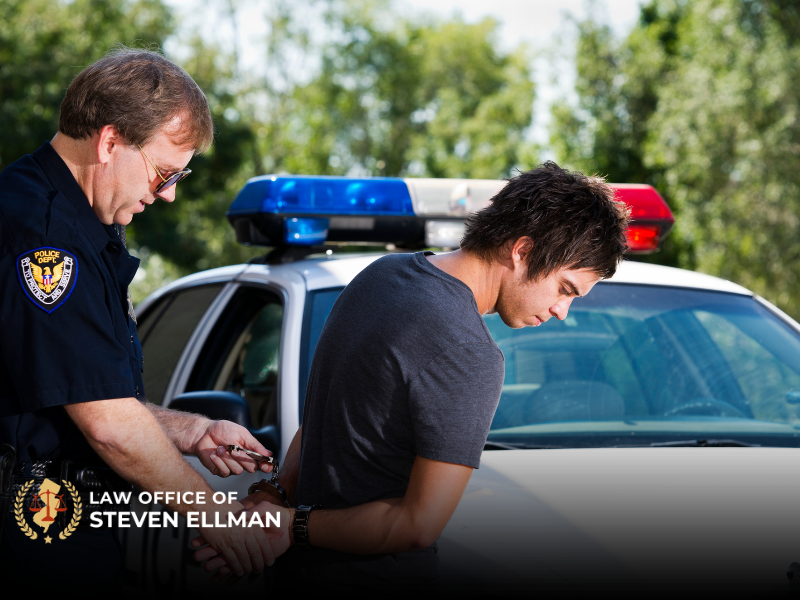
A driving while intoxicated (DWI) charge, also known as a driving under the influence (DUI) charge, is a serious matter in Northern, Central, and Southern New Jersey that comes with equally severe legal consequences. As such, the moments following a DWI arrest can be confusing and overwhelming. Filled with fear and uncertainty, many people wonder, “What now?”
The answer is to contact a knowledgeable New Jersey DWI lawyer like Steven Ellman, who has more than 30 years of experience protecting the rights of people dealing with DWI cases. He can
explain what happens after a DUI offense in Northern, Central, and Southern New Jersey, advise you on your options when facing a DWI conviction, and protect your rights throughout the process.
When those red and blue lights flash behind you, your heart might skip a beat, especially if you suspect you could be over the legal limit and potentially facing drunk driving charges. Don’t panic. Instead, remember how the process plays out and how to react appropriately. Here’s how the initial arrest takes place:
If the police arrest you on suspicion of drunk driving, keep a cool head and remember that you have rights throughout the arrest process. You have the right to remain silent and not incriminate yourself. These rights mean you don’t have to answer any questions about where you were, what you were doing, or how much you’ve had to drink. Additionally, after the arrest, you have the right to a phone call and the right to legal counsel from criminal defense lawyers. Maybe you suspect that the police violated your rights at some point during the arrest. If so, an experienced DWI defense attorney can help address those concerns and potentially use them to your advantage.
While a DWI arrest is frightening and challenging on its own, the steps that follow can be just as intimidating, particularly without a criminal defense attorney’s help. Here’s what you can expect after the police arrest you on suspicion of DWI:
After the booking process, prosecutors will decide whether to file formal charges based on the evidence the police have gathered, such as your blood alcohol content (BAC) levels or the results of field sobriety tests. If they do, they will formally accuse you of a specific offense or set of offenses. Next, you will receive a court summons, an official legal document that orders you to appear in court on a specified date and time. It’s of utmost importance to carefully read and understand the contents of this summons, as failing to appear in court can lead to additional penalties, including a warrant for your arrest.
Next is the arraignment, which is your first official court appearance. At the arraignment, you will enter a plea: guilty, not guilty, or no contest. Your answer determines what happens next in your case.
At this stage, it’s vital to understand the different penalties for DUI charges in New Jersey. For example, a first-time DWI offense with a BAC between 0.08 and 0.10 percent carries up to 30 days in jail and a maximum fine of $400. By contrast, a third DUI offense carries up to 180 days in jail and a maximum fine of $1,000. Your New Jersey DWI lawyers can tell you more about the potential penalties in your case.
Attorney Steven Ellman has 39 years of experience with cases like these, and he’s gotten the charges dropped for more than 80 percent of our clients. Our firm can examine the evidence against you, see if the police obtained any evidence illegally, handle negotiations with local prosecutors, and represent you at any court appearances you have. Forgoing an attorney’s help means putting yourself at risk of the most severe penalties for a conviction, including license suspension, substantial fines, and lengthy jail sentences.
The Law Office of Steven Ellman understands the stress you’re feeling and wants to help you through this difficult chapter. Contact us today for a free consultation to learn more about your rights when facing a DWI conviction in Northern, Central, and Southern New Jersey.
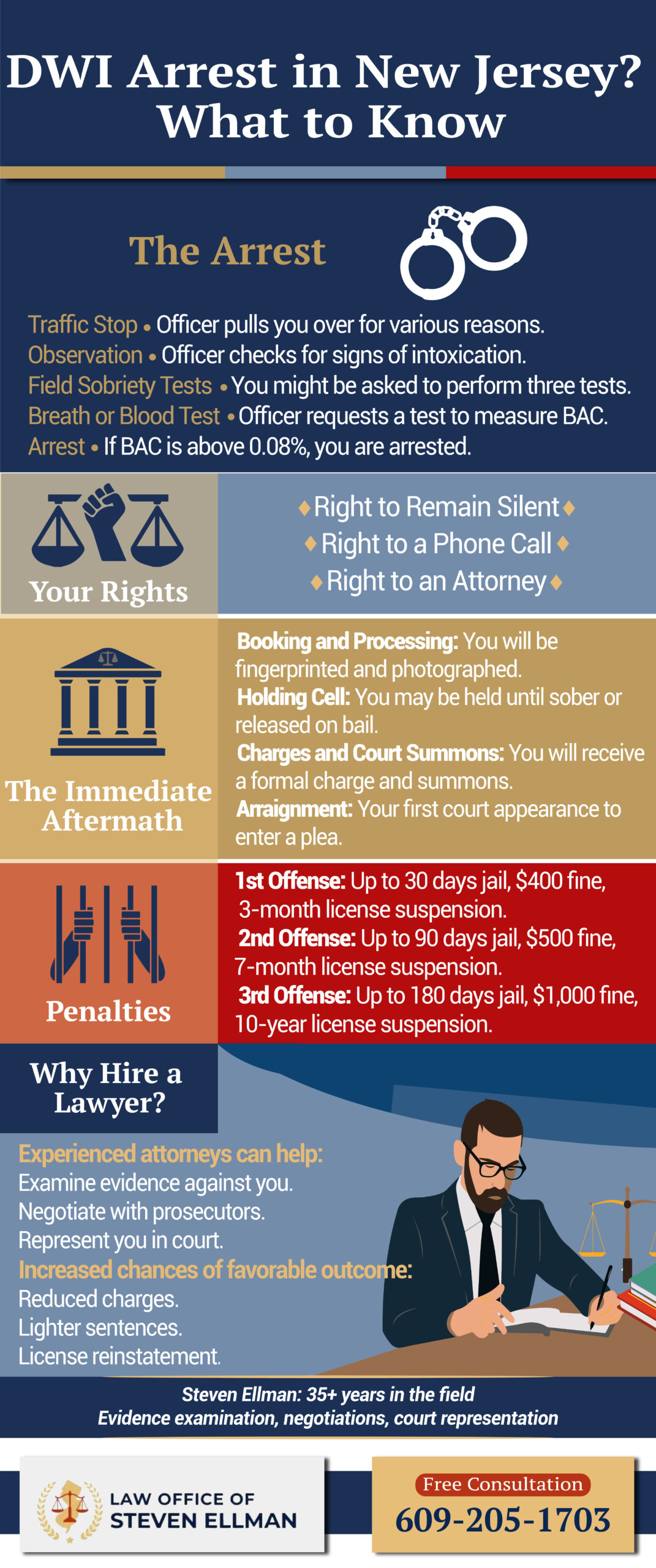



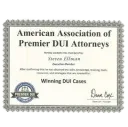
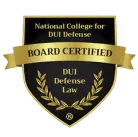











| Monday | Open 24 hours |
| Tuesday | Open 24 hours |
| Wednesday | Open 24 hours |
| Thursday | Open 24 hours |
| Friday | Open 24 hours |
| Saturday | Open 24 hours |
| Sunday | Open 24 hours |
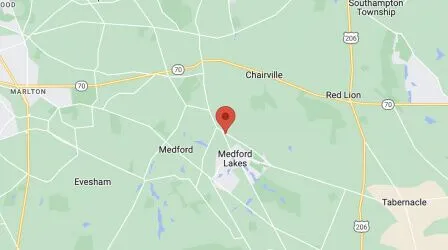
| Monday | Open 24 hours |
| Tuesday | Open 24 hours |
| Wednesday | Open 24 hours |
| Thursday | Open 24 hours |
| Friday | Open 24 hours |
| Saturday | Open 24 hours |
| Sunday | Open 24 hours |

| Monday | Open 24 hours |
| Tuesday | Open 24 hours |
| Wednesday | Open 24 hours |
| Thursday | Open 24 hours |
| Friday | Open 24 hours |
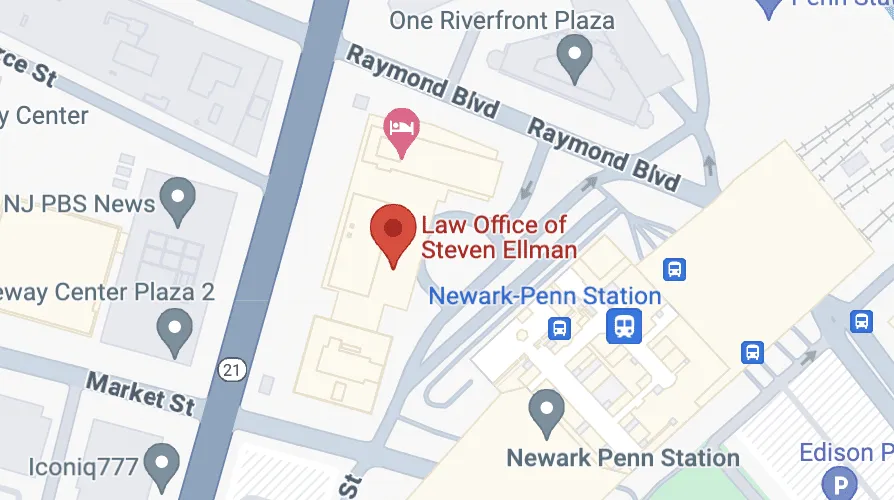
© 2024 All Rights Reserved. The Law Office of Steven Ellman